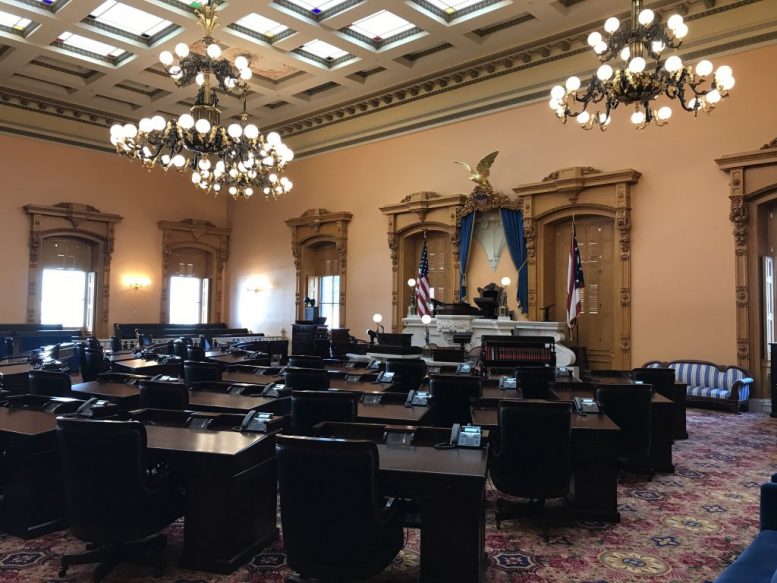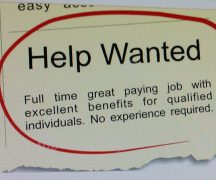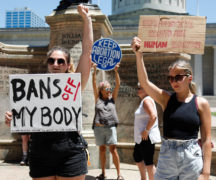Ohio progressives are waging a two-pronged war to hike the minimum wage to among the highest of any state in the nation.
On one front, a House committee heard testimony Wednesday on a bill sponsored by House Democrats that would raise the minimum wage to $15 an hour by 2024.
Similarly, people associated with different progressive outfits filed paperwork Friday seeking to place a $13 minimum wage constitutional referendum.
Data from the Department of Labor shows Ohio’s current minimum wage rate is in the middle of the pack, as far as states go.
Kelly’s bill would make Ohio the national leader. The referendum would leave Ohio trailing only Washington D.C. ($14 per hour) and Washington state ($13.50 per hour).
In the House, Rep. Brigid Kelly, D-Cincinnati, testified to the House Commerce and Labor Committee on her legislation to raise the minimum wage from $8.70 to $15 in annual increments through 2024. It would also grant cities and counties the ability to raise their respective wage floors further, if they wish.
“I think we’re in a really challenging position,” she said. “Over decades, people have been working longer, people have been working harder, their productivity has increased. In a lot of cases, corporate profits have increased. But pay hasn’t kept up with that.”
Several House Republicans warned of unintended consequences of a wage hike.
Rep. Dick Stein, R-Norwalk, asked about a wage hike’s effect in the fast food, agriculture, or part-time industries. He argued food prices would jump and part-time labor opportunities would sputter under a rate increase.
“When we have young people, 16-year-olds, who are moving into the market for the first time, getting their first job, whether it’s a fast food place or Dairy Queen or whatever it might be, and they really haven’t got the job skill set to maybe justify that $15 per hour,” Stein said to Kelly. “Do you still believe we should pay them $15 as a high school student for that learning experience?”
Kelly countered, claiming a majority of minimum wage earners aren’t teenagers but working adults.
Their employers, she said, are effectively subsidized by the state and federal government when they’re forced to rely on safety net programs like Temporary Assistance for Needy Families or Medicaid.
With both chambers of the General Assembly, along with the governor’s office, under sturdy Republican control, several progressives formed a committee making an end-run around the lawmakers.
James Hayes, Deputy Director of progressive activist group Ohio Voice and one of the committee members on the referendum effort, said working families want a minimum wage bump and can’t wait for politicians to get it done.
“It’s time for Ohioans to take matters into our own hands,” he said
The referendum process will require gathering hundreds of thousands of signatures from registered voters, and ultimately a ballot victory to take effect.
Recent years have brought a flurry of Democratic action on the minimum wage.
According to research from the National Conference of State Legislatures, the rate increased in 14 states on Jan. 1 via legislative action or referendum – Arizona, Arkansas, California, Colorado, Illinois, Maine, Maryland, Massachusetts, Michigan, Missouri, New Jersey, New Mexico, New York, and Washington.
In Congress, the Democratic controlled House passed a bill in July to raise the federal minimum wage from the current $7.25 per hour to $15 per hour, though it has since languished in the U.S. Senate.
In July, analysis from the Congressional Budget Office, a nonpartisan group that evaluates policy for representatives, found the increased wage would directly increase wages for 17 million Americans and likely increase wages for another 10 million who already earn above the minimum wage. The number of people with annual incomes below the poverty level would fall by about 1.3 million.
However, about 1.3 million workers would lose their jobs, according to the CBO.
“For me, for an economy to really work well, it means that everyone is really sharing in the wealth and the success that has been created by folks that work hard every single day,” Kelly said.





